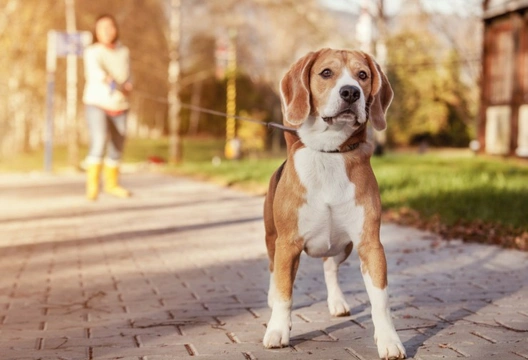
Five big training and handling mistakes often made by dog owners
Every dog owner wants to do what is best for their dogs, and this means ensuring that the dog is well trained, responsive and a pleasure to be around, as well as being trustworthy and reliable when handled. Training the dog is an ongoing, lifelong process that should not be considered to be finished once the dog has got the hang of the basic commands or reached a certain age, and training skills in the dog should be refreshed and worked on constantly throughout the life of the dog.
Many dog owners read a lot of books and information on training before they get going, but after the dog is reliably responsive, a lot of the initial good intentions often fall by the wayside, and many dog owners too find that however well trained their dog, there are a few rough areas or pinch points that they cannot seem to perfect, no matter how hard they try!
Training is equally important for the owner as it is for the dog, and so it is important for all dog owners to constantly review their approach and training skills, in order to ensure that they are getting things right. In this article, we will look at five big training and handling mistakes that dog owners often make, and how to avoid them! Read on to learn more.
1. Pulling back against a pulling dog
Even some very obedient and well trained dogs will have a tendency to pull on the lead, which, depending on how strong your dog is, can be a real problem! Many dog owners fall into the easy trap of turning on-the-lead walks into a battle with their dogs, constantly pulling back against them or using the collar and lead to check the dog, which does nothing to end the vicious circle of pulling and pulling back, and can actually make things worse!
Don’t pull back against a pulling dog, or you will never get their compliance for the long term! Instead, when your dog begins to pull, stop and stand still, and wait until your dog stops pulling and the lead slackens, before carrying on. Repeat this process every time your dog pulls, until they learn that pulling won’t get them anywhere faster, but will actually bring them to a stop! This can take a fairly long time to perfect, but it is worth it in the long run.
2. Getting het up over recall
A dog whose recall skills are unreliable can be really stressful for the dog owner, leading to worry over where the dog has got to, what they are doing, and if they are ever going to come back! Understandably, this can cause owners to become het up and distressed, frantically calling their dogs back, and when the dog returns, their relief and annoyance are soon communicated to the dog, who sees this as a punishment for their return, making things worse.
Ensure that when you recall your dog, you do so calmly and assertively, and do not yell, become annoyed or otherwise het up. Work on retraining your dog’s recall skills over a period of time, and keep yourself calm and in control, even if your dog is not!
3. Using the dog’s name when chastising them
If your dog has done something bad, it is very common to tell them off using their name; “Fido, no! BAD Fido!” However, this should be avoided. The dog’s name should be used to get their attention and call them, but not as part of a telling off, otherwise they will come to associate the use of their name with being in trouble, which will alter their reactions to the use of their name in future.
4. Being inconsistent
Consistency is the key to successful dog training and ownership, and just a small inconsistency can quickly undo all of your prior hard work. If you are trying to teach your dog boundaries or alter their behavioural norms, you must stay consistent, not letting them get away with something one day and telling them off for the same thing the next day.
5. Treating the human’s mistakes as the dog’s mistakes
Has your dog gone to the toilet inside of the house, chewed something up while you were out or dug a big hole in the garden? Then they probably need to be told off, right? Wrong! First of all, telling a dog off for something after the event is pointless, as the dog does not know what you are actually chastising them for, only that they are in trouble.
Secondly, a huge number of behavioural problems in the dog can be attributed to the owner, and their handling and training, and this is what you should look at first and foremost.
If your dog toileted in the house, was this maybe because you expected them to go for too long without going out, or ignored their request to go out? If they chewed something up, were they left alone for too long, and not provided with toys that they can chew? If your dog has dug a hole in the garden, how come you weren’t supervising them?
A huge range of issues such as these can be attributed to mistakes on the part of the handler, not the dog, and this should be the first thing that you look at when trying to correct problems.



